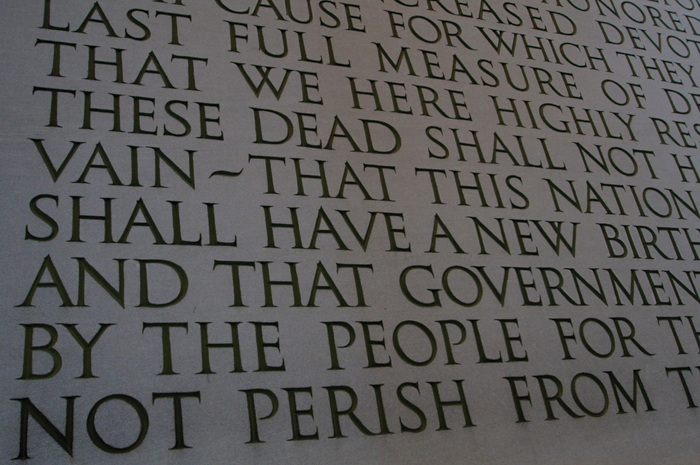Like every era, ours is one where events that happen before our eyes have the potential to mask the truth of what is really happening and require discernment. It reminds me of the importance of the biblical warning: “He who has ears, let him hear” (Matt. 11:15). It seems we need a right view of the way things are, followed by a right response to that reality. It is easy to miss what is really happening by going in the wrong direction in one of two ways.
On one hand, we may wrongly think that things are getting better. It is true that there are great advances in technology, medicine, and communications. The expansion of access to culturally significant ideas, the arts, and leisure are impressive. One could easily be tempted into thinking that things are looking up. It’s happened before. Even believing communities and Christianized societies have been impacted by seeming progress throughout history to the point that theology became reactive—in an overly positive way—instead of prophetic, and discernment was replaced by euphoria.
On the other hand, it is easy to see many ominous signs around us and conclude that things are not looking good, that things are in a downward spiral, and that all hope is lost. Here Christians go from being engaged and aromatic to withdrawn and hopeless. It seems to me that a right way of looking at the world is to view it as dying, not dead. There are two things to bear in mind about a world that is dying: 1). It is under a sentence and 2). It doesn’t offer lasting hope (life). Both of these truths are helpful to me when I look at the world around us. A sentence has been handed down; it has not been executed. A dying world offers me little yet it may not appear dying all the time.
Our right response to the realities around us is possible because we are meant to be more than observers. What does being an adult heir of Christ mean? What does it look like to be entitled to an inheritance of eternity? It looks different from the world. If we are to take our place as heirs, we must also be prepared to suffer with Christ (Rom. 8). We are in a world that is dying, but we are alive. The suffering that we endure is not unto death but unto life. God, who is the all-loving One, allows His people to endure great difficulties. If He does this as part of His perfect plan, ought we to act as though we are OK with that? Ought I be able to offer encouragement that is real because it includes the hope of eternity?
In the eyes of the world, we may seem callous when we see others’ real suffering as fleeting inconveniences. However, in light of eternity, we are faithful sons and daughters, choosing to see our pains as passing trials and holding on to the eternal truth of the gospel. The battle we fight is over eternal things. Indeed, it is in light of eternity that the apostle Paul was able to call suffering “momentary afflictions” (2 Cor. 4:17)—and for us, these are encouraging words.
 Seeing the world as dying can make all the difference when looking at the things of this world and comparing them to those things of lasting glory. As a parent, I think of what it means to give up all earthly desires for my children. Is that only wealth and luxury? The harder things for me to give up are my desire for them to be happy and healthy, and to someday be married. But they are earthly desires too, right? Interestingly, isn’t the way we look at children and our desires for their future not only foolish, but also wrong to a society that has only this present world to consider? Are we prepared for the ridicule and hatred that will inevitably come from people who can’t see the love in the things that Christians do? Eternal things can’t make sense to the world.
Seeing the world as dying can make all the difference when looking at the things of this world and comparing them to those things of lasting glory. As a parent, I think of what it means to give up all earthly desires for my children. Is that only wealth and luxury? The harder things for me to give up are my desire for them to be happy and healthy, and to someday be married. But they are earthly desires too, right? Interestingly, isn’t the way we look at children and our desires for their future not only foolish, but also wrong to a society that has only this present world to consider? Are we prepared for the ridicule and hatred that will inevitably come from people who can’t see the love in the things that Christians do? Eternal things can’t make sense to the world.
[blockquote align=”left”]We are at war because we belong to a conquering King. Instead of fighting the battle, though, we’ve assumed the role of victor—before our work is done.[/blockquote]At the very same time that the world dies, it fights back in unrepentant rebellion. I think we’ve dressed for the wrong battle. But that’s the human way, isn’t it? Consider the U.S. Army’s cavalry charge against Japanese forces on the Bataan Peninsula, Philippines in 1942. Outdated and out-armed, the besieged forces were forced to slaughter their horses for food, and the 26th Regiment fought on foot or in whatever scarce vehicles were available until their surrender. That was the last horse cavalry charge in U.S. military history. We prepare for battle against an enemy that is ever-changing while we don’t see the shift in tactics.
Growing up in an evangelical home in the 1970s and 1980s, I was prepared in Sunday School and Vacation Bible School to face persecution. We learned of missionary martyrs, closed communistic and totalitarian regimes, possible apocalyptic future scenarios—all with the possible outcome that we may be called to die for our faith. In the end, that is in fact what any of us may face. But, while we prepared for persecution, the enemy’s tactic was coopting. Rather than decimate evangelical churches with a head-on assault, the enemy lured church members so that the difference between the church and the world was blurred, and the next generation, who saw no real difference, left what they saw as hypocrisy behind.
The offerings of a dying world don’t bring life—they can’t. Still, it is amazing how death can have such a draw. Rather than remaining obedient to our Ruler while loving and shepherding those who reject Him, we seek the approval of these same lost. The consequences of thinking that what the world has to offer has value that compares with what belongs to a chosen people are grave. In our relationship with this world, we seek its approval even though we’ve been told it is passing away. We want what it is incapable of delivering—lasting hope—and again lose our prophetic voice because we actually seek to take from what actually needs to be saved. Our prophetic role never ends because the sentence on the world remains. When we seek from it, we stop prophesying.
We are at war because we belong to a conquering King. Instead of fighting the battle, though, we’ve assumed the role of victor—before our work is done. What a dangerous thing to do. For we go from being on the Lord’s side to being alone against the enemy with no hope to resist his most effective tactic—enticement. Called to be soldiers, we’ve chosen to negotiate without the authority from our King. We are never referred to with terms that would give us any hint that we may have a prerogative to partner with the enemy.
In his Heidelberg Disputation of 1518, Luther contrasted the theology of the cross with a theology of glory. What have we endured? What are we resisting? How are we identified with our Leader who was slain? Do we even have an enemy anymore? Or know who it is? Worse, it seems that at times, we’ve claimed glory rather than wait to have it bestowed on us. Rather than being faithful and have our faithfulness praised one day by the only One who matters on such things, we act as if the battle is over and that we have been loyal soldiers. We are adult heirs, entrusted to defend the faith of our Father who has adopted us, who act as if our work is done, and we feel entitled to enter into our eternal rest. Worst of all, we seem to act as if the life we have been given now is not in preparation for the life to come.
How common it has become for evangelical leaders to live out their own catharsis in front of those whom they should be leading, as if being pathetic is the same as showing biblical weakness. I wonder how seriously we take the idea of eternity—both for ourselves and for the lost around us. Yes, the world has nothing to offer of eternal value. Yes, it is dying. Yes, it needs what only we can offer. I love the words of Pastor Saeed Abedini, an Iranian pastor, who wrote to his congregation from his Iranian jail cell, “I am looking forward to the day to see all of you who are behind me with your prayers and to embrace you in my arms. Thank you for the love you have showed me. What is in us is stronger than what is in the world and it has conquered the world.” These are the words of a soldier. I heard a pastor once say, “Someday we’ll drop our armor to the ground and live forever as victors.” I love that image. It’s an image that conveys the reality in which we live.
Seeing the world in this light is not an approach that withdraws. Death is real. Death is tragic. But all is not lost. The world is not dead. It is headed for destruction, but it is not over yet. The victory is won, but the battle continues. We engage as confident soldiers committed to the task before us and sure of our certain hope and undefeatable Leader. But we fight with weapons that save and willingly offer ourselves up in the hope of salvation for others—for it’s in light of eternity that we can do this too.
[info] Paul Neal is Sr. Vice President for Communications and Marketing at Cairn. He has been working at the University since June 2014. He can be reached by emailing pneal@cairn.edu.[/info]
Paul Neal is Sr. Vice President for Communications and Marketing at Cairn. He has been working at the University since June 2014. He can be reached by emailing pneal@cairn.edu.[/info]